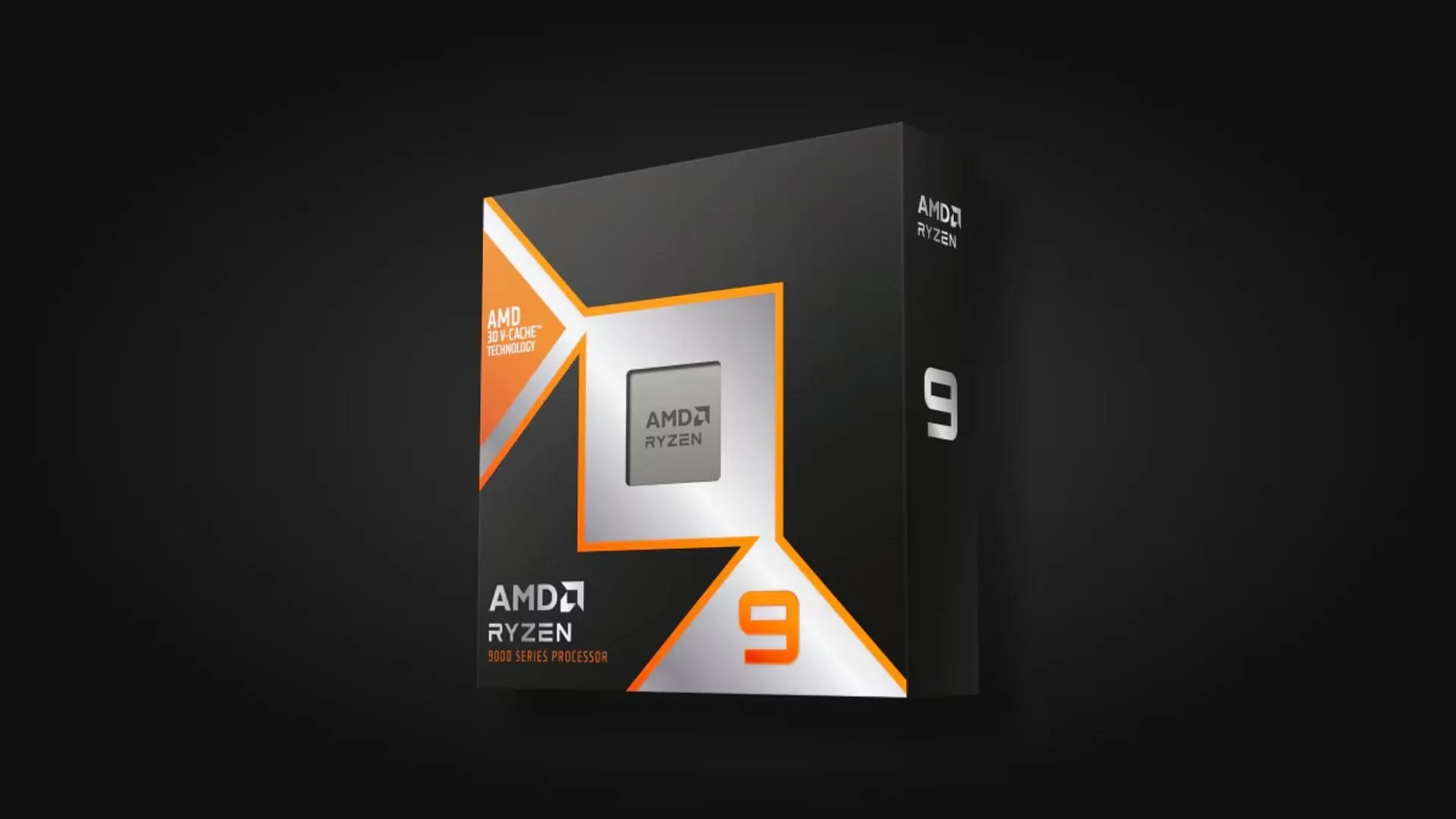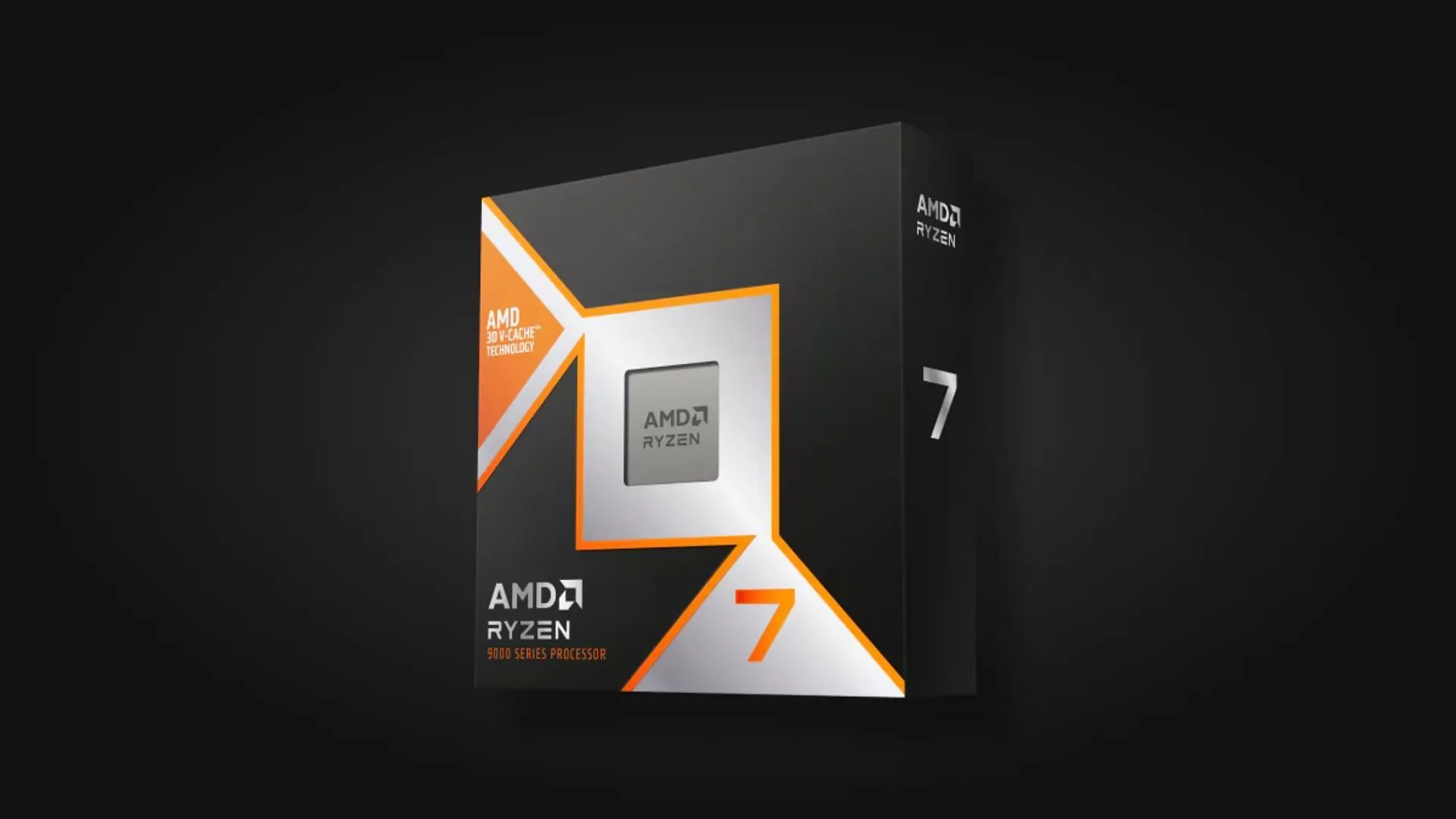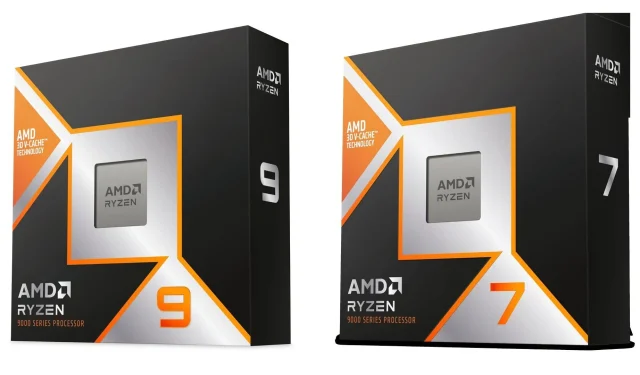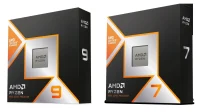The AMD Ryzen 9 9950X3D and Ryzen 7 9800X3D are among the top-tier gaming CPUs available today. Designed to maximize performance when paired with the latest graphics cards, these processors appeal to both high-end gamers and tech enthusiasts alike.
Choosing the optimal X3D processor can be challenging due to the distinct performance profiles and specifications of these chips. In this article, we will examine the pricing and performance characteristics of both models from AMD’s Zen 5 family to help you make an informed decision.
Premium Performance: The Flagship X3D Processors

Both the Ryzen 9 9950X3D andthe Ryzen 7 9800X3D incorporate AMD’s innovative 3D V-caching technology. Unlike their predecessors, the Ryzen 7 9700X and Ryzen 9 9950X, these processors benefit from a redesigned Core Complex Die (CCD) layout, which enhances their overall efficiency and performance.
Specifications Overview
While both CPUs belong to the same Zen 5 generation, their specifications reveal significant differences. The Ryzen 7 9800X3D features a more budget-friendly configuration with 8 cores and 16 threads, whereas the Ryzen 9 9950X3D boasts an impressive 16 cores and 32 threads, making it a powerhouse for demanding tasks.
Noteworthy enhancements on the 9950X3D include an additional package die containing 8 cores optimized for lower clock speeds, specifically designed to work with the 3D V-cache technology. The remaining cores are engineered for higher clock speeds, facilitating improved performance in multi-threaded and CPU-intensive workloads.
| Specification | Ryzen 9 9950X3D | Ryzen 7 9800X3D |
|---|---|---|
| Cores / Threads | 16 Cores / 32 Threads | 8 Cores / 16 Threads |
| Base Clock | ~4.3 GHz | ~4.7 GHz |
| Boost Clock | ~5.7 GHz | ~5.2 GHz |
| L2 Cache | 16 MB | 8 MB |
| L3 Cache | 128 MB | 96 MB |
| TDP | 170W | 120W |
| Integrated Graphics | 2-core AMD Radeon Graphics | 2-core AMD Radeon Graphics |
| Memory Support | DDR5 | DDR5 |
| Overclocking | Yes | Yes |
| Package Die Count | 3 | 2 |
| Price | ~$835 | ~$399 |
A major consideration when deciding between these two processors is price. The Ryzen 7 9800X3D is available for approximately $399, making it a more attractive option for many consumers. In contrast, the flagship Ryzen 9 9950X3D is priced above $835, positioning it as a premium choice that may not be feasible for all gamers.
Performance Insights

While gaming performance heavily relies on the GPU, the 3D V-cache technology uniquely enhances performance, leading to better scaling compared to traditional CPUs. For a clearer picture, we utilized statistics from the YouTube channel Testing Games, where games were benchmarked at 1080p using an RTX 4090 with 24 GB VRAM.
| AMD Ryzen 9 9950X3D | AMD Ryzen 7 9800X3D | |
| Microsoft Flight Simulator 2024 | 106 FPS | 104 FPS |
| Hogwarts Legacy | 70 FPS | 67 FPS |
| Cyberpunk 2077 | 162 FPS | 164 FPS |
| PUBG | 339 FPS | 330 FPS |
| Red Dead Redemption 2 | 206 FPS | 204 FPS |
| Marvel’s Spider-Man 2 | 80 FPS | 88 FPS |
| S.T.A.L.K.E.R. 2 | 102 FPS | 102 FPS |
| Counter-Strike 2 | 731 FPS | 728 FPS |
| Kingdom Come Deliverance 2 | 194 FPS | 211 FPS |
| Starfield | 159 FPS | 157 FPS |
| Forza Horizon 5 | 257 FPS | 252 FPS |
| Ghost of Tsushima | 204 FPS | 216 FPS |
From our benchmarks, the Ryzen 9 9950X3D is marginally slower, with average performance being 0.85% lower than that of the 9800X3D. However, the Ryzen 7 9800X3D outperforms its counterpart in titles such as Marvel’s Spider-Man 2 (by 9.09%), Kingdom Come Deliverance 2 (8.06% faster), and Ghost of Tsushima (5.56% faster), despite being nearly half the price.
In conclusion, if your focus is primarily on gaming, the Ryzen 7 9800X3D stands out as the better buy. Although the Ryzen 9 9950X3D provides more cores and cache, making it suitable for demanding multi-core applications, the 9800X3D delivers sufficient performance for most gamers and casual users without breaking the bank.
For additional insights, data, and comparisons, feel free to check the source of this article.


